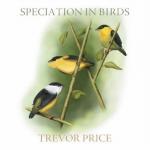|
This section contains 1,943 words (approx. 7 pages at 300 words per page) |

|
Speciation can be defined, in a general way, as the various processes by which new species arise. Speciation mechanisms can be categorized in several ways. Some species arise by the divergence of two or more new species from a single common ancestral species (divergent speciation), while others arise from hybridization events involving two parental species (hybrid speciation). When a hybrid speciation event occurs, the newly derived species may have the same chromosome number as its parents (homoploid hybrid speciation), or it may have a higher number (polyploid hybrid speciation). In the latter case, the chromosome number of the newly derived species is usually the sum of those of its parents. In fact, polyploid hybrid speciation is one of the most frequent speciation mechanisms in plants.
Criteria for Recognizing Species
Because two major criteria for the recognition of species are in wide use in biology, any discussion of speciation...
|
This section contains 1,943 words (approx. 7 pages at 300 words per page) |

|


